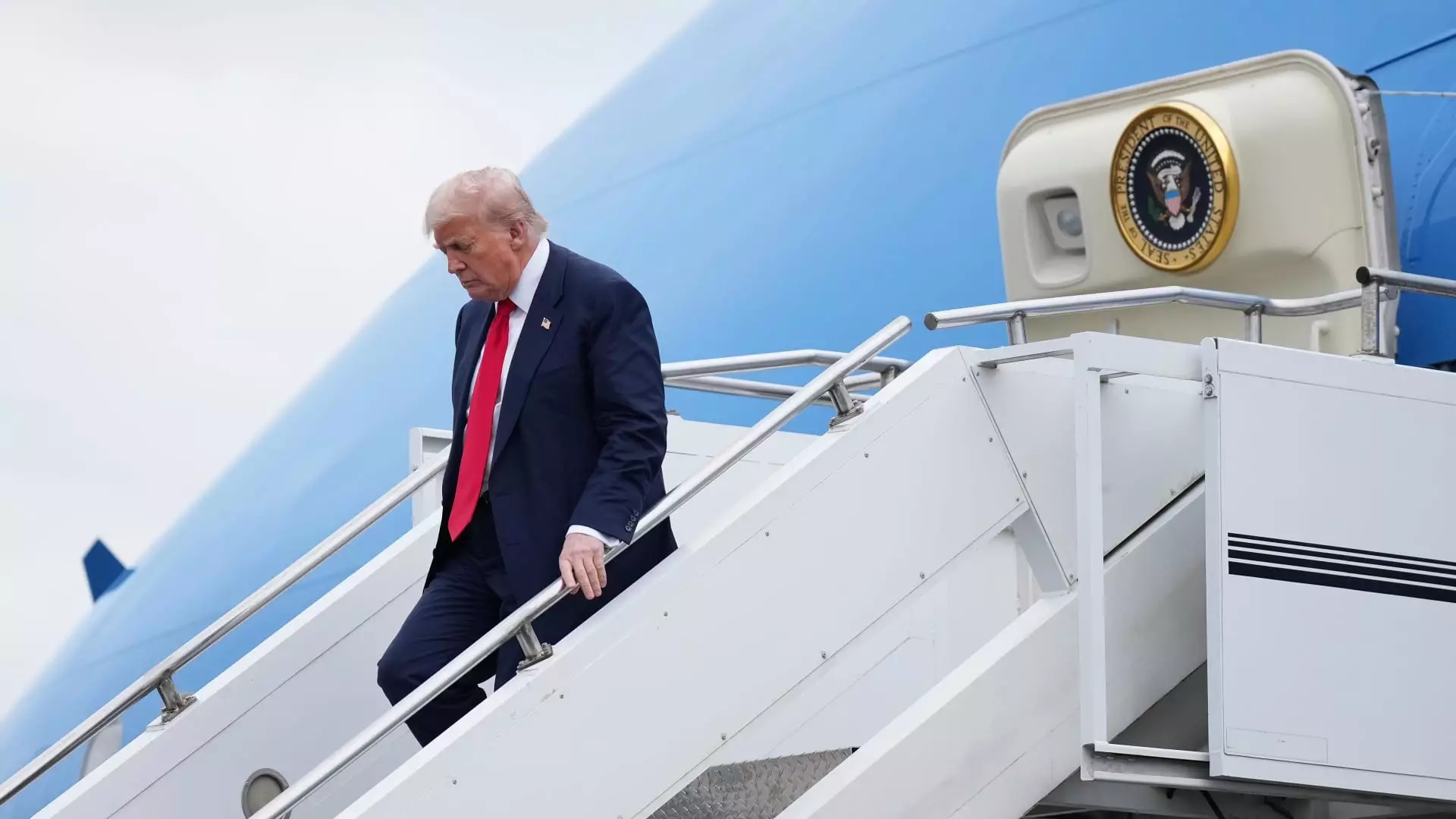The upcoming meeting between Ursula von der Leyen and Donald Trump is being portrayed with an air of cautious optimism, but beneath the surface, it exemplifies the perilous reliance on fragile diplomacy amidst mounting economic tensions. While headlines highlight the possibility of halting a potential 30% tariff implementation, this prospective agreement should not overshadow the deeper issues at play. Relying on a temporary patchwork deal not only sidesteps the urgent need for comprehensive trade reform, but it also risks escalating conflict instead of fostering genuine cooperation.
The core problem lies in the fundamentally incompatible economic philosophies of the EU and the U.S., where protectionist instincts and unilateral tariffs threaten to undermine decades of collaborative progress. The emphasis on short-term gains — avoiding immediate tariffs — distracts policymakers from addressing structural issues like fair trade practices, technological disruptions, and regulatory divergences. As much as leaders might hope to project an image of negotiation success, settling for a minimal 15% tariff baseline merely postpones the inevitable collision course, risking a damaging trade war that could destabilize global markets.
Opting for Half Measures in Critical Trade Negotiations
The reported willingness to accept a 15% tariff base instead of outright rejection signals a dangerous compromise. It suggests that negotiators are more interested in preserving face than in crafting a robust economic framework. The risks of such half-measures are profound, as they often embolden protectionist actors—both within the U.S. and the EU—to push for ever-higher tariffs under the guise of national interests. The fact that the U.S. administration’s rhetoric swings between threats and negotiations reveals a fundamental inconsistency, undermining the credibility of transatlantic cooperation.
Furthermore, the side note of the U.K.’s trade relationship with Trump — based on a relatively modest 10% tariff — underscores a strategic imbalance. The U.S. appears more willing to flex its economic muscles with its closest allies while offering minimal concessions, revealing a transactional approach that could alienate long-term partners. The danger is that such diplomacy reduces complex economic and political issues to simplistic tariff negotiations, ignoring broader concerns such as climate change, digital regulation, and labor standards that demand multilateral, not bilateral, solutions.
The Specter of a Global Trade War and the Illusion of ‘Big Deals’
The recent U.S.-Japan agreement, touted by Trump as “perhaps the largest deal ever made,” exemplifies how superficial headlines mask the underlying fragility of trade pacts. A 15% baseline tariff in Japan’s case might seem moderate, yet it signifies a shift toward acceptable levels of economic confrontation. If the EU follows suit, it risks engaging in a race to the bottom, where trade policies become tools of political leverage rather than instruments of prosperity.
The tendency of officials and economists to categorize such deals as “bad but better than nothing” reveals a troubling resignation. Instead of pushing for genuine reforms—such as multilateral agreements that address digital trade, environmental standards, and worker protections—the EU and U.S. appear willing to settle for minimal increments that serve narrow national interests. This approach jeopardizes the stability of the global economic order, which relies on trust, transparency, and shared commitments.
By focusing on superficial negotiations, leaders endorse a shortsighted paradigm that prioritizes immediate political triumphs over long-term sustainability. It risks eroding the foundation of a rules-based international system, where complex issues demand collaborative strategies rather than opportunistic deal-making. As manipulation of tariffs and selective agreements become the norm, the global economy is vulnerable to spiraling uncertainty and conflict, with ordinary workers bearing the brunt of this reckless brinkmanship.
The Need for Bold, principled Leadership—Not Empty Promises
In an era where economic disruptions are accelerating—whether through technological change, climate crises, or geopolitical upheavals—centrist liberalism must advocate for policies rooted in fairness, equality, and multilateral cooperation. Merely skimming the surface of trade issues with temporary deals offers no real solution; it’s a band-aid on a festering wound. Leaders must recognize that meaningful progress requires integrity, transparency, and a willingness to confront uncomfortable truths about the global economy’s inequities.
Hoping that the negotiation window remains open long enough to slip in minimal tariff reductions is a gamble that could backfire spectacularly. Instead, policymakers on both sides should embrace a forward-thinking agenda that places the well-being of global citizens above narrow political gains. Only through genuine reforms—rooted in a shared commitment to sustainable development and economic justice—can the transatlantic alliance truly flourish in a rapidly changing world. Anything less invites chaos masked as diplomatic success, a path that leads us further from stability and deeper into a cycle of reactive protectionism.


Leave a Reply